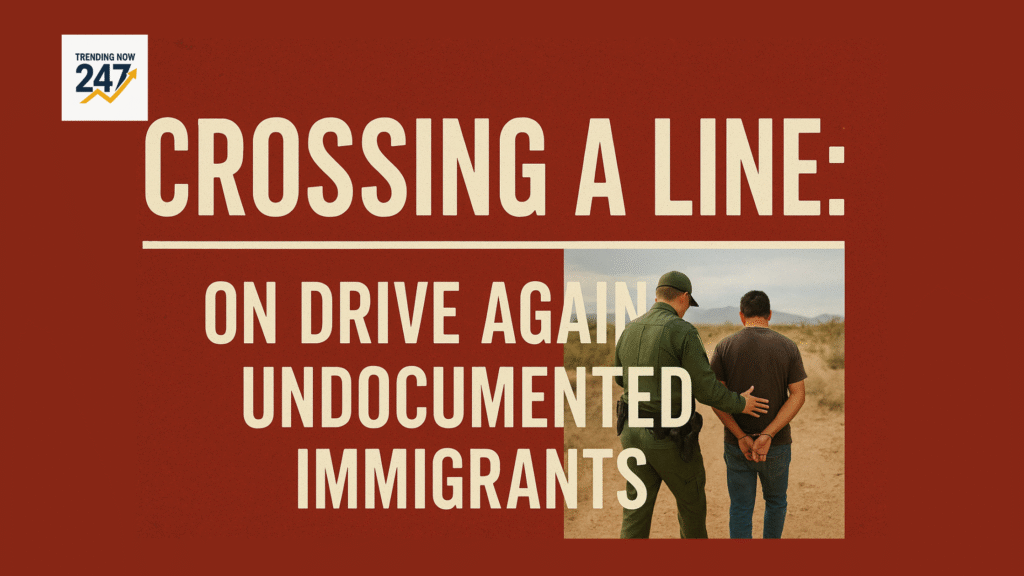It began quietly, just after dawn. The drive against illegal immigrants is hurting Indian citizens too
On the edge of town, vans rolled into the gravel lot behind the apartments. Doors slammed. Uniforms spilled out. By the time the sun reached the rooftops, four fathers, two mothers, and a teenage boy were gone.
They call it “enforcement.” I call it crossing a line.
This week, another round of raids swept through our communities before sunrise. Doors knocked down, children crying, neighbors watching from behind curtains. The targets weren’t criminals in hiding .They were parents on their way to work, students getting ready for class, people who’ve built lives here for years.
Yes, nations need laws. But laws without compassion turn into blunt instruments. And right now, that’s exactly what our immigration policy has become a tool that breaks families faster than it fixes problems.
We’re told these actions keep us safe. Safe from whom? The woman cleaning our offices after hours? The man fixing our leaky roofs? The teenager tutoring younger kids in English? These are not threats. They’re part of the fabric of our towns, our schools, our churches.
Police in several Bharatiya Janata Party (BJP)-ruled States are trying to identify undocumented Bangladeshi immigrants by their language: Bengali. This approach has led to some comical errors, such as the Delhi police listing “Bangladeshi” as a language a massive leap in linguistics. However, in most cases, this has become a tragic and farcical exercise. Several documented instances have shown Indian citizens being pushed across the border into Bangladesh. This has caused significant hardship for the families involved and embarrassment to the government. Some individuals have been repatriated to their families in West Bengal after intervention by the State government or courts. This “pushback” of suspected Bangladeshis is a part of a larger effort to bypass the due process of law, which is often lengthy and rigorous. The rounding up of Bengali speakers has sparked a debate in West Bengal, where the ruling party, the Trinamool Congress, has called it an “attack on Bengali identity” and launched a language movement.
The targeting of Bengali migrants has immediate consequences for their livelihoods. Fearing detention and forced relocation to Bangladesh a country to which they may have no connection many migrant workers from West Bengal have left their jobs. In one particular case, Delhi police detained Bengali speakers who had been granted Indian citizenship under a well-known land exchange treaty with Bangladesh signed by the Narendra Modi government. Bengali is India’s second-largest language by number of speakers. The State of West Bengal is both a source and a destination for migrant workers. The divisions being created over language and identity could easily escalate into conflict and violence. Even for the BJP, this exercise makes little political sense and may be counterproductive ahead of the 2026 Assembly elections in West Bengal. The migrant workers from West Bengal who are being harassed in other States do not belong to a single community. BJP leaders in West Bengal are already facing criticism over the issue and are setting up camps to assist citizens with the Citizenship (Amendment) Act in various constituencies across the State. The issue of Bangladeshi citizens entering and working in India is not new. For decades, people from the neighbouring country have entered India for political and social reasons, including better economic opportunities. The boundaries of India are a creation of colonialism and a violent history of political conflicts. While sovereign borders must be protected, the central government must ensure that law enforcement does not become counterproductive and lead to the harassment of its citizens.
